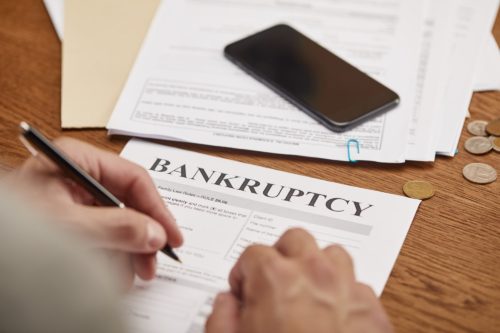CARES Act Bankruptcy

The Coronavirus Aid, Relief, and Economic Security Act (CARES Act) was signed by President Trump on March 27, 2020. This is one of several acts that have been passed in order to provide economic and disaster relief to those severely impacted by the negative effects of COVID-19.
The CARES Act not only provides emergency financial relief. It also temporarily amends bankruptcy for individuals and small businesses. Keeping American Workers Paid and Employed Act (Title I, Section 1113 under the CARES Act) outlines specific bankruptcy changes along with Title 11 of the U.S. Bankruptcy Code. The Small Business Reorganization Act (SBRA) of 2019 was also temporarily amended under the CARES Act.
What Are The CARES Act Bankruptcy Changes?
Emergency funding or income from coronavirus aid programs will be excluded from an individual’s ability to qualify for Chapter 7 or Chapter 13 bankruptcy. The amendment is temporary for one year until March 27, 2021. This means that emergency aid related to the coronavirus won’t be considered as part of a borrower’s regular income, monthly income, or disposable income. For example, should an individual debtor receive a stimulus or funding check from the U.S. government, that funding is excluded from Chapter 7 bankruptcy filings. That same funding would also be excluded from Chapter 13 bankruptcy, even if a repayment plan is already in place.
Debtors who have already filed for Chapter 13 bankruptcy, under certain circumstances, may adjust their existing repayment plans to creditors and possibly extend payment deadlines. Under the Bankruptcy Code amendment through the CARES Act, debtors may be permitted to extend bankruptcy repayment plans by up to seven years from the first payment’s due date.
President Trump very recently signed the Small Business Reorganization Act (SBRA) into action late last year in 2019. Small businesses now have a larger debt threshold under the Small Business Reorganization Act (SBRA) through the CARES Act amendment. For the next year, small businesses may file from $7.5M which is a substantial increase from the original estimated $2.73M prior to the CARES Act. Once the temporary amendment expires in 2021, this threshold returns to just under $2.73M.
As business revenue halts for many, business owners are making difficult choices to layoff employees, close their doors, file for foreclosure, or use personal savings to stay afloat. Companies and corporations with a significant amount of debt owed to creditors may need to file bankruptcy. When businesses declare bankruptcy, they may file under Chapter 11. This type of bankruptcy does not necessarily require complete liquidation of assets and allows a business to remain open while they repay debts to creditors. A plan of reorganization or restructuring of assets and finances to schedule a payment agreement is usually required for bankruptcy. Repayment plans for debts owed can be agreed upon in the bankruptcy courts with the help of a bankruptcy law firm and team of attorneys.
What Do The COVID-19 Bankruptcy Changes Mean For Small Businesses?
SBRA’s original purpose was to make filing Chapter 11 bankruptcy easier for small businesses. This included allowing business owners to hold on to equity in special situations. As well, by getting rid of committees of unsecured creditors, overall costs of Chapter 11 bankruptcy decrease. Particular bankruptcy deadlines also shorten in order to expedite cases and allow businesses to reorganize appropriately.
The benefits and changes made through SBRA are still relatively new as they were enacted just last year. Because of its age and new amendment under the CARES Act, SBRA may mean less time in bankruptcy court and faster reorganization plans for insolvent business owners. Business owners filing bankruptcy may have more leeway when it comes to securing economic relief from COVID-19 emergency funding programs. Further, those emergency funds might be excluded from a bankruptcy repayment plan. U.S. Bankruptcy Code changes allow a larger threshold for small business debts which makes it easier for them to restructure and reorganize during a bankruptcy case.
There have been many changes to business in the last few months because of the coronavirus pandemic. While the COVID-19 bankruptcy changes may be temporary, they might be a saving grace for many people who own small businesses and desperately need financial relief. For questions about bankruptcy and insolvency law, be sure to seek the proper legal and credit counsel with a trusted bankruptcy attorney.
Office Locations
Greensboro
305 Blandwood Ave
Greensboro, NC 27401
Phone: (336) 274-4658
Fax: 336-274-4540
Eden
551 Monroe Street
Eden, NC 27288
Phone: (336) 623-4600
